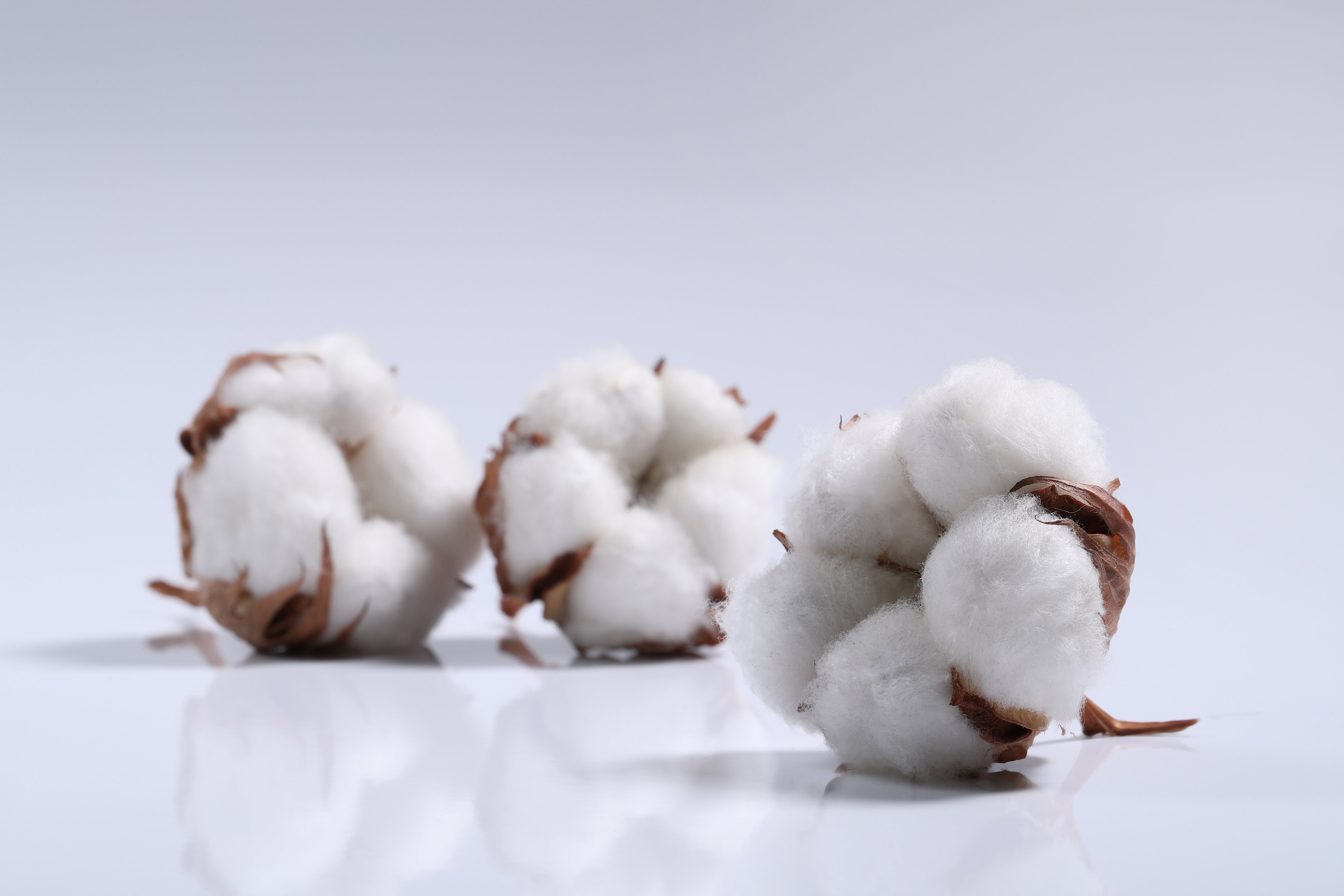What Is Organic Cotton And Why It's The Better Option

Cotton is the most commonly used natural material in the world, and for good reason. It is a lightweight, breathable, quick-drying fabric that can be used to make a multitude of useful products including clothing, upholstery and home textiles.
Unfortunately, conventional (or natural) cotton is not the most sustainable material on the market but there are a few different types of cotton available that are, including organic cotton.
Organic cotton shares many of the same qualities as natural cotton with the added benefit of being a more eco-friendly and ethically-sourced alternative.
What is organic cotton?
This subcategory of cotton is grown in subtropical regions, such as India, Turkey and China, on organic farms and currently makes up 1-2% of all global cotton production. It can usually be identified through certifications like GOTS and OCS which are independent organic certification standards in the UK that closely assess every step of the supply chain to ensure that it meets the strict environmental and social criteria.
If a cotton is certified organic it means that, unlike conventional cotton, it is grown without the use of any chemicals namely pesticides or fertilisers. Typically when harvesting cotton, farmers will use these toxic chemicals to kill pests that may damage their crops but in the production of organic cotton this is not the case.
As a result, organic cotton is deemed a very environmentally-friendly material as these chemicals are highly toxic and, when released into the atmosphere, emit greenhouse gas which can cause a lot of damage to people and the planet.
In fact, organic cotton is reported to emit up to 46% less greenhouse gas than non-organic cotton.
Furthermore, organic farmers use methods such as composting to nurture and create healthy soil that can soak up more water during floods and retain it for longer during droughts. This means that crops grown on organic farms, including cotton plants, require 11 times less water because the soil is more effective in providing these nutrients.
Not to mention, organic farmers rely heavily on rain water to feed their crops rather than extracting it from the ground which can put pressure on water supplies in local communities.
Clearly, organic cotton is a great choice for a more holistic approach to sustainable production as it considers the environmental, social and economical impact that harvesting cotton can have and uses better methods of farming to reduce any negative effects.
Differences between conventional cotton and organic cotton
Not only is organic cotton more eco-friendly because of the way it is farmed but these environmental standards continue at the factory and through the production stage.
A GOTS certification means that no hazardous chemicals are used at any stage of the supply chain, this includes the factory, and that all waste water is treated.
There are also social standards that must be met when producing organic cotton which means good and safe working conditions, no child labour, fair pay and working hours and no forced labour. Factories are regularly inspected to make sure that they maintain these standards throughout production.
Not only are there clear differences in the sustainability of organic cotton versus conventional cotton but there are some physical differences between them too.
Organic cotton fibres are considered to be of better quality than conventional cotton because they are longer and stronger which may be due to the lack of interference from chemicals during the growing process.
Essentially, this means that products made from organic cotton will tend to be longer-lasting and more durable which is why they often come with a higher price tag. You can feel the difference between an organic cotton t-shirt and a conventional cotton t-shirt on your skin and you will get a lot more wear out of it too.
It is also a lot softer, more skin-friendly and anti-allergenic thanks to the lack of chemicals in its production which makes it a popular material for baby products such as towels, bedding and clothing. There is far less likelihood that the cotton will cause a reaction because it has not been in contact with any hazardous chemicals.
Even the simple fact that organic cotton is carefully handpicked to preserve the purity of every fibre and ensure that no damage is caused through the process whereas, conventional cotton is usually machine-picked to keep up with the demand and supply means that the end product is of higher quality.
Our organic cotton products
We make a range of ethically-sourced organic cotton products all of which are GOTS certified and made in one of our audited and accredited factories.
Choose from a tote bag for grocery shopping trips, cosmetic bags to store your make-up and drawstring pouches for wedding or party favours.
You can even add your bespoke artwork, branding or custom additional features to create a promotional product for your business that can be used for events, giveaways, packaging, gifting and more.
All our organic cotton products are high-quality, reusable and 100% recyclable.
Check if your organic supplier is GOTS certified today to make sure you are buying genuine organic products, no greenwashing.







